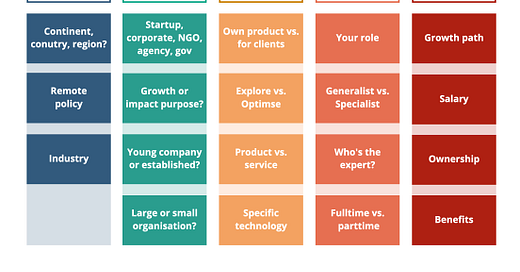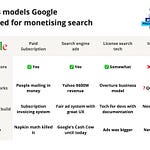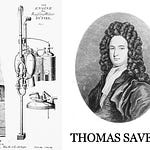🔥 Welcome sub 918 and up! :) Only 82 more till quadruple digits.
So this article is a little less startuppy than other content. I still believe it’s valuable because startups are not the only place you can learn about tech and innovation.
Over the years, people came to me to discuss career paths in tech. Broad range: From someone already working for 20 years to a graduate student finding their first job.
I caught myself asking similar questions and people seemed to be helped. This is synthesis of the questions I think you should answer before you sign your next job.
Your goal is two-fold.
You need answers to each of these questions
You need to learn in what order these questions matter to you
🌍 Where in the world?
Continent, country, region?
Some people have preferences for ‘abroad’, due to friends and family living there. Or people want to avoid some places, due to ‘friends’ and family living there.
Remote policy
Do you require 50% from home? Full digital nomad?
Full remote (digital nomads)
Most remote
Balanced
Most physical
Full physical
Any industry you want to work in?
One of the most simple identfyer is the industry you work on. Examples:
Healthcare
Education
Travel
Mobility
Fast Moving Consumer Goods
Consumer Electronics
🏢 What kind of company?
What kind of company do you want to innovate in?
The type of company says a lot about how they innovate. Innovation at a coorporate is vastly different than innovation in a scale-up. Either can be fun and works for different types of people. The bigger the organisation, the more politics.
Startup
Scale-up
Coorporate (e.g. a bank or Philips)
NGO
Government
Brand/design/marketing/innovation agency
Consultancy firm
Culture of these firms
In my experience, culture is embedded in company types. I’m not saying all coorporates are alike, but any corporate is more like another corporate than it is to a startup. Start-ups tend to attract younger people. Coorporates have more seniors. However, the composition varies hugely.
In coorporates, innovation tends to move slower because they have many more checks and balances, people with a say an internal politcs. I hate it. But some people have more patience than me.
What’s the purpose of the company
Each company plans its activities according to a purpose. Some are growth or revenue driven, shareholder value driven and others impact. Matter of personal preference. In NGO, you might find purpose driven people, where in a Scale-up you will find growth focused people.
Growth/scale ambition
Customer value/design centric
Money making
Do cool stuff
Impact
Sustainability
Inclusion/Diversity
Local or regional focus
All companies will say they are all of the above. I’ve met people that say they find sustainability important and end up working in marketing quite poluting industries. Just be true to yourself.
Young company or established?
Do you want to be in a company that already is doing something for 50 years? Or a company that is still figuring out stuff. The company age does not only reflect product maturity but also organisational maturity. How well defined are the processes? Do you mind everything is a mess, such as in a startup? Or do you like to have some thing defined, as in a scale-up?
Large or small organisation?
This is often but not always related to size. How big a piece do you own? In a startup you have more relative ownership, while in a coorporate you might own a smaller relative chunk but can make more absolute impact.
🚀 What type of innovation?
Own product vs. for clients
Are you building your own product or for a client? If you are in an agency, you can end up not being in control of final say of how the thing you make ends up being used. How long is your product alive for? In an agency, you might build something for 4 months, move never think about it again where in a dedicated comany you will work on a product for 5 years, easily.
Do you want to build your own product and serve customers directly? Think Slack, Netflix, Spotify
Or do you take joy in building products for clients, this is what agencies often do.
Explore vs optimise
If you want to work in innovation, you want to create new things. However, there’s a variety of options. AirBnB does a lot of exploration, but not always on new business propositions. Some is on UX only, while some years ago they added the experiences proposition. What type of things would you like to work on?
Exploration
Synthesize innovatation strategies
Research new polymers in a lab
Explore a market for new business opportunities
Build a new product as a startup
Launch new products for a corporate
Optimise
Do user research on existing products
Optimising existing solutions
Optimising existing processes
Implement new solutions in existing situations
Product vs service vs. …
People often think of new products when they think of innovaitons. However, there’s ample space for innovations of non-product nature. Here’s a list of types of innovations.
Physical products
Digital products
New technologies
Services
Process innovations
Media/Content
Organisational innovations: redesigning the structure of organisations
Generating new knowledge (academics)
Any specific technologies you want to work on?
Some people have specific preferences to work with a certain technology. I speak to ambitious AI students that are really drawn to computer vision. Especially engineers can have a certain focal point or tech stack they want to work with. Some roles are more technology agnostic than others.
💪 What do you do?
Your role
The above points are not unique to a specific role. This role often describes the types of activities that you will be performing. Simply put: Do you like designing? Do you like programming? Do you like making sure things go neatly in a project?
CEO/CTO/etc
Product manager
Data scientist
Strategy maker
Entrepreneur (many hats)
Engineer/developer (this is a broad array)
Academic researcher
User research
Service designer
Customer success employee
Copywriter
Specialist vs. Generalist?
What share of time do you want to do what? In some roles, being a generalist is expected. Being a generalist often comes with more managerial and project management roles. For instance, you can be a pure dev. But some developers also organise the dev guild. If you are a project manager, you as a generalist work with many specialists.
Who’s the expert
When you are in a startup, you might be the only person responsible for something. Let’s say marketing. If you are in a bigger organisation, it could be that there are marketing experts you can learn from.
Your superior
How much can you learn from your superior? Especially early in your career, a good boss can make much of a difference
Fulltime vs. Parttime
It’s quite simple. Are you planning to work full-time or parttime? Or freelance? I see some data scientist starting to freelance. Doesn't work well for everyone as you need to do sales and acquisition.
💰 What do you get?
Growth path
How do you want to develop yourself? The company you work for should offer you the right challenges and right people to develop you in a certain way.
Is this company going to offer me the right way to grow in the coming 3-5 years?
Salary/Ownership/Benefits
How much do you want to earn? There’s a lot of content (such as GlassDoor) on what people earn and how to negotiate.
What do you want to get monthly?
Are they reimbursing you with shares?
Benefits/Do you need a company car? Health insurance? Gym membership?
🫃Trust your gut
These questions are not equally important to you. Every person is unique. I meet quite some people that say: “I really want to work in healthcare” or “I really want to work on a sustainable company”. Some other students say “Yeah I want to work in a startup”.
Your goal is two-fold.
You need answers to each of these questions
You need to learn in what order these questions matter to you.
What to do?
Go to a job board/google for interesting jobs
Tune in with your gut → Your gut feeling is important
For each job that you see, check your gut
If your gut says ‘Hell yeah!’ → Great, what do you like about it?
If your gut says ‘Hell no!’ → Great, figure out what puts you of?
Try to figure out what your gut is driving you towards, using the questions above. You will identify what is important to you
🌶️ Spicy hot take 🔥
Before I started my PhD, I’ve worked at 6 different companies with 9 different roles. Short attention span much? This is not new to me, I once did the calculations: between age 15 and 21 I’ve had 21 different jobs. For instance, I worked at McDonalds for 4 hours. Then I quit, since I was only dressing burger buns and the outlook was to do that for 2 more months before I could learn something new.
I’m not saying switching jobs is per say good, but you want to optimise the fit between you and your job to some extent. The book Range talks about the term ‘sampling period’. Anecdotes about famous sports players that have played five sports before finding their right fit. The theory there is that anyone can learn on any job, but real talent will grow so fast if the fit is right.
It's okay to not find the perfect job right away. Perfect might not exist and creates pressure. This will result in you not giving things a chance. Be considerate about it. Good luck.
How was this one?
Great - Good - Meh
Thinking of starting a startup?
Do you have this idea lying around but don’t know where to start? Could you use some guidance to get to market? I help people build products and validate business models.
Ideal for professionals that want to launch on the side or founders that launched that need to improve their to market strategy.













Share this post